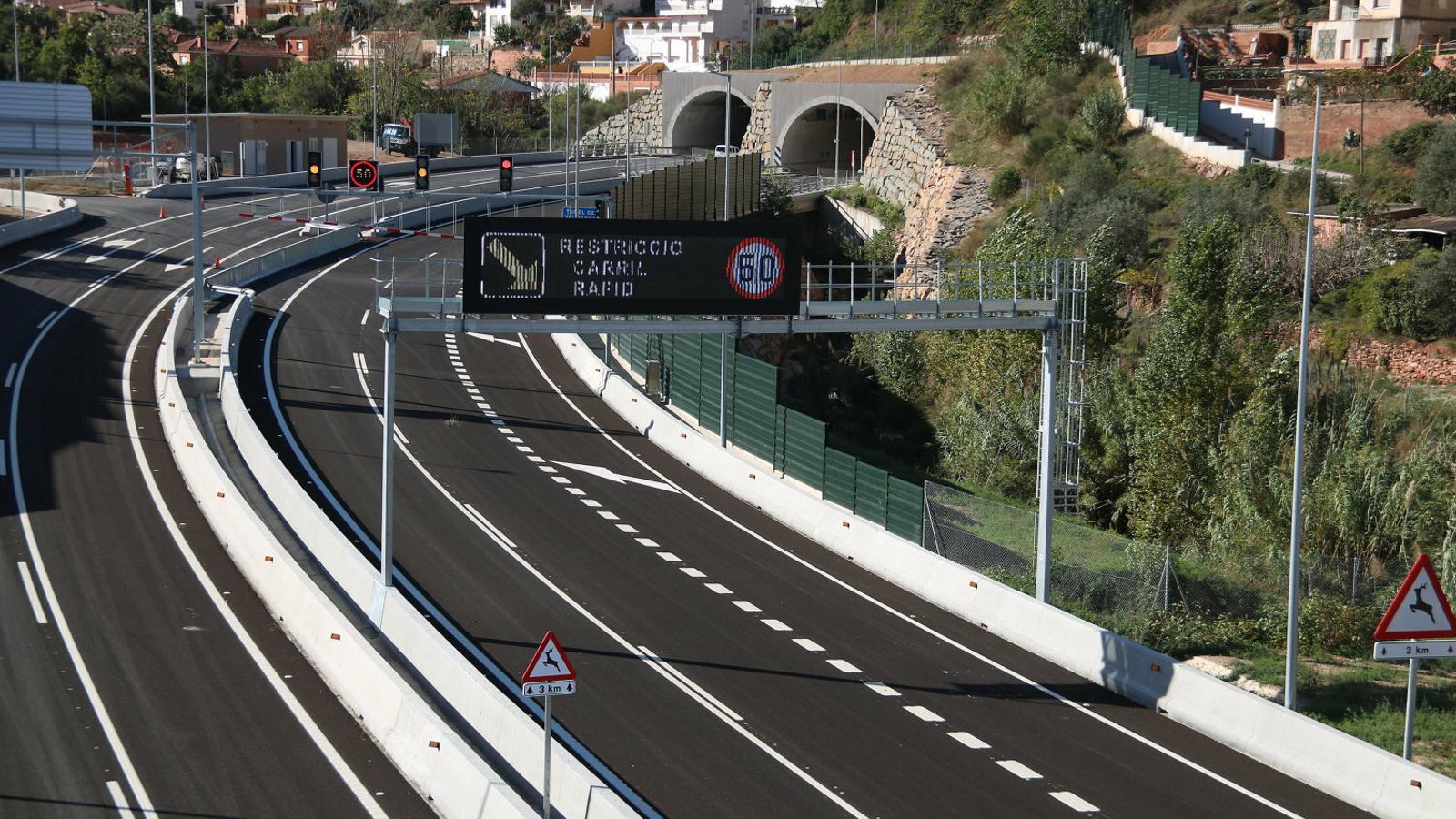Foment calculates state underinvestment in infrastructure in Catalonia to be €35bn
Employers' association monitored the budget of eight Catalan works that "distort" the State's real investment


BarcelonaThe Spanish state approved projects and budgeted infrastructure works worth €35bn in Catalonia, which, on the other hand, have not yet been carried out. This is the calculation made by the Catalan employers' association Foment del Treball after analysing and comparing the initial budget of works announced with their final result over the last 12 years (between 2009 and 2020). According to Foment, this figure should be public since it "totally distorts the state budgets", since the works which have not been carried out "are appearing year after year in the budget" without an assessment of the real state of the works or what has already been invested and what has not.
"Only in the last two years, between 2019 and 2020, this deficit already increased by €7bn," said the president of Foment del Treball, Josep Sánchez Llibre, who says that the study leads them to a "very sad conclusion": during the period 2013-2020 (since records are kept) the execution of the investments programmed in Catalonia by the State only reaches 67% of what was planned. "This means that 33% is lost along the way," he stressed. Foment also advances that the Generalitat is "a little more compliant", but not enough: it executes 77% of what is initially budgeted. "There is still a 23% of lack of execution that makes us lose competitiveness," says the president of Foment.
To alleviate these delays, which have been dragging on for years, business representatives have asked the public administration to commit to investing €5bn a year in infrastructure. "What we are asking for is a conservative figure, around 2.2% of GDP, which is what the 12 most developed countries in Europe invest on average," said Joaquim Llansó, vice-president of the employers' association.
To exemplify this lack of compliance, the employers' association has selected eight Catalan infrastructures that have failed to meet all the schedules. These are the figures:
- The Vallirana bypass This road was initially budgeted for €53.9m and with an execution schedule of 2 years and 9 months. Finally, it was inaugurated in 2019, 15 years later, with a budget of 167m, according to Foment's calculations. In total, it has appeared 15 years in a row in the General State Budget (PGE).
- A-2 and AP-7 junction in Catellbisbal Another similar case. It was tendered for €59m and the works started in 2007. It was supposed to last 2 years and 3 months, but it took 15 years. During all this time it appeared in the PGE. The final cost was €74.5m, according to data from the employers' association.
- Widening of the N-II road through Girona With a tighter budget estimate, this dual carriageway widening was tendered for €33m, with a completion period of 1 year and 3 months. It ended up taking 7 and a half years to be completed, at a cost of €33.9m. It appeared for 13 years in the PGE.
- A-27: widening of N-240 Tarragona - Montblanc It was tendered for €122m in 2009, with an estimated 3 years and 9 months to be carried out. The work, however, is still in progress and now the timetable says that it will have taken, in total, 11 years and 11 months if nothing changes. It has been in the budget for 15 years, says Foment.
- B-40 orbital highway With a budget of €195m, it was forecast in 2007 that it would take two and a half years of work. The work is still underway, and the latest forecasts indicate that it will take 14 and a half years to finish at a total cost of €263m. It will have been in the general budget for 15 years.
- A-2 connection with C-32 in Sant Boi del Llobregat Planned in 2009, it was put out to tender for just over €51m (not all of it was awarded) with a deadline of 1 year and 8 months. Now, however, it is estimated that it will cost less, about €45m, but the schedule indicates that it will have taken 12 years and 7 months to build. This infrastructure has appeared 10 years in the PGE, says the employers' study.
- New road access to the Port of Barcelona With an initial tender of almost €149m, it was estimated that it would take 3 years and 4 months to build it. It is currently still underway. It is not known what the final cost will be, but it is estimated that it will take a total of 7 years and one month to finish it. It will have appeared in the budget for 15 years.
- New rail access to the Port of Barcelona The southern rail access to the Port of Barcelona had to be started from scratch because the project was found to be unsafe. According to the employers, it has been seven years since it appeared in the PGE, with an estimated cost of around €100m, and now the ministry has indicated that it expects to have the draft of the new project this summer
The situation of these works drives the employers' association to despair, and it is demanding more public-private collaboration with construction companies to reduce deadlines. "We realise that they count the same works many times in the general budgets even though they do not take into account that the work is progressing," Llansó warns. It is evident that this distorts the budgets a great deal". Llansó gives as an example the many millions of investment made under Zapatero, Rajoy and Sánchez: "If the previous ones had really made the announced investment, it would not be necessary for there to be so many", he regrets.
The same happens with access to the airport: "They come to Catalonia to say that the agreement has already been signed; and it is the third time they have signed it. They have also put it out to tender two or three times. So, what happens with these accounts, and does anyone then do the exercise of discounting them when the budget is not executed?" questions Llansó. "The business sector is concerned. We demand rigour, seriousness and responsibility," concluded Sánchez Llibre.
In the midst of this panorama, Foment has pointed out that the NextGeneration European funds have a deadline for execution, and that it will be necessary to be diligent. The employers' association has positively valued the fact that the arrival of these funds has doubled the investment announcements in Catalonia: "It is good news, of course, as long as they are executed", concludes Llansó.
